Talking TV: Fox’s Portia Bruner Finds Her Place In Talk
Portia Bruner may not have a live audience for her Atlanta-based, eponymous talk show, but she can envision her audience clearly.
The veteran anchor/reporter, now hosting the show’s second season at Fox-owned WAGA, sees women like herself, eager to talk about the major currents currently defining their lives — single parenthood, physical and mental health crises, mid-life reentry into the dating pool — with her playing the conduit to spark those conversations to full life.
Bruner hopes that in doing so, she can continue to push Portia along an upward trajectory from her Atlanta audience and Fox Soul, Fox’s Black-targeted streaming channel on which she’s also shown, to eventual national syndication and a live audience that would take those conversations to the next level.
In this Talking TV conversation, Bruner explains how she came to host Portia, how she sees its remit and how following in the steps of first-name daytime talk heroes like Phil, Oprah and Sally is where she’s aiming.
Episode transcript below, edited for clarity.
Michael Depp: Portia Bruner is a veteran TV reporter and anchor at Fox-owned WAGA in Atlanta who scored an eponymous talk and lifestyle show on the station last year. The show recently returned for its second season. In addition to airing weekdays in Atlanta, the show runs nationally every weeknight on Fox Soul.
I’m Michael Depp, editor of TVNewsCheck, and this is Talking TV, our weekly video podcast. Coming up, a conversation with Portia Bruner about her show, what she brings to it and ambitions she has for it. We’ll be right back.
Welcome, Portia Bruner, to Talking TV.
Portia Bruner: Thank you so much, Michael. It’s a pleasure and an honor to be here to talk about the ins and outs of being in this talk show land that has made me go — exploding head emoji — what just happened? This is amazing! So, thank you.
We will get to all the things that have powered that emoji right now. Portia, you spent a long time as a television reporter on all kinds of beats, including consumer reporting. You’ve logged time on the anchor desk. You’re a well-known person in Atlanta. Why did you want a talk show?
Well, because I am a storyteller at heart. Right? I’m pretty much I’m convinced that this is what God put in my DNA in my mother’s womb. I was always the kid in school who had the longest story and sometimes the most colorful story about what did you do over the summer? When I was in middle school, I wanted to be the first black journalist in outer space. And I watched every shuttle launch thinking one day that’s going to be me. And then in seventh grade, the Challenger blew up on live television. And for a bunch of, you know, middle schoolers sitting criss cross applesauce, that changes things. Right. It was heartbreaking- and I just realized, OK, I still want to tell stories. It’s not going to be in outer space, but I still want to be a person who gets to tell stories that make people want to listen. And so, of course, journalism was what I was going to do for a living.
My mother realized early on she had a chatty girl and was very deliberate about curating a college search that included radio and a television station and magazines and newspapers all on the same campus. I grew up watching, you know, Ed Bradley on 60 Minutes and of course, Oprah and Sally Jessy Raphael and Phil Donahue. I had a babysitter who watched Phil Donahue like clockwork. And Larry King, you know, and the local news anchors in Denver, Colorado, where I grew up. And so, I locked in early on this concept of being able to ask questions that people who don’t have the microphone would want to ask if they could talk to a person. And the skill of listening, not just hearing what somebody’s saying, but listening and asking the follow up and sharing the story and then finding out what the lesson is for others.
So, I enjoyed journalism, I loved being a professional storyteller. I loved reporting, I loved anchoring. But, you know, when you’re news director and your general managers say, “we have this idea and we think that we would like to give you a platform where you could tell the stories of Black women and the men, women, children, friends that they love, and all of the things that Black women are talking about that may not be getting a good spotlight,” you say, “Yes, check, here. I’m here for it,” and it was just a given.
I mean, it’s something that you say when you’re a kid that you’d like to do when you’re watching Oprah or Sally or Bill. But I didn’t ask for it. But I am so, so grateful that this is what God saw fit to do, particularly in this season of my life as a storyteller.
So, they came to you and said, “Hey, how about having a talk show?” It didn’t originate with you saying, “I want a talk show”?
I mean, yeah, on the side you’re like, ”gosh, I would sure love a talk show.” But no, I’ll be honest with you, Michael. I would not have thought that I could go to a news director and a general manager at a local news setting, and say, “I’d like a talk show” with such a very specific target audience. I just didn’t think because this is sort of a prototype, right? There’s nothing that really looks like the way we’re doing it.
And I would have thought that that would have seemed arrogant to say, “Hey, can I have a talk show where we talk about issues that impact women?” And, you know, the target audience obviously is Black women. But so much of what we are talking about, if you weren’t looking at the screen and just listening, it’s what women of all backgrounds and ethnic backgrounds and economic backgrounds are talking about.
I wouldn’t have thought that that was something that you can say in a mainstream media platform. Can we just narrow it down to what sisters are talking about and be sure to include what the men are talking about and what kids are talking about or what people on the spectrum are talking about and what our Latino brothers and sisters are talking about and what folks who don’t know their ancestry are talking about until they’re on a search for their adoptive parent.
I wouldn’t have asked for that. I’m not quite that bodacious, but I am so grateful that they said they’d been watching what I did and some of the things that I did behind the scenes on social media, I guess, really were in a sense, little miniature talk shows, conversations with people.
And during COVID, Michael, as you well know, it’s why we’re doing this in a virtual setting now. People were just silenced and lonely and going through it and if you had to sit alone and you weren’t used to that… I’m an only child and I wasn’t used to it. People wanted to be heard and wanted somebody to look into a camera and say, “I see you. I hear you. What’s going on in your life?”
And so, I was doing these little things called Bruner Behind the Scenes. I’ve been doing them in live trucks and just sort of showcasing what a photographer and I … what our day was like, the day of a journalist’s life in Atlanta and a photojournalist life in Atlanta. And then when I started anchoring the new show, I started doing it in between, you know, the Bruner Behind the Scenes. I’ve been doing them a lot. And then when I started anchoring the new show, I started doing it in between the blocks of the newscast in a commercial break.
Unless we were doing really heavy news day, serious, breaking news, you have to always be mindful of your tone. Right? So, you’re not going to talk about what’s happening on social media with somebody going off about where you can’t take a person on a date when you’ve got a heavy news day with, you know, shootings and, you know, murder trials going on.
But for the most part, I tried to very consistently be present online and on the air. And that’s where a really strong following came in. And apparently, I didn’t know, but management is watching. There’s a lesson right there. Lesson one, management is watching, and people are watching. And when people are watching you, it’s important how you show up. I wasn’t doing it thinking I’d get a talk show. I was doing it because I was kind of lonely, too, and enjoyed the conversation.
So, it’s sort of an organic outgrowth that you’re doing. You know, you talk to any veteran of the syndication world, and they’ll tell you that a talk show is all about connecting with the audience. People are spending time with you every day in and out. They need to feel connected with you as a person. So, what do you think in your case? What are you giving off that people are connecting with?
Thank you for asking, because that’s part of what I’ve had to learn to be a better talk show host. My executive producer, Kathy Sapp, spent the first few weeks in like July and August of 2022 getting me out of my news reporter anchor position. Right? I’m old school, Michael. So, there is no opinion. You’re not telling people what you think. You’re telling people what you know and what you feel like they need to know to make an informed decision, right? So, I was very much a news person.
It took me some time to sort of kind of come out of the box a little bit and do what I was doing behind the scenes on social media. And that is what I realized people connect with. They like the fact that I’m open about the fact that I got this dress at a thrift store. I mean, if you’re shooting two talk shows a day, you’re doing two wardrobe changes. Nobody’s paying full price for that when we’re getting ready for all the college applications. And so, I think there was a transparency there that I think a lot of people could relate to and that some people were surprised by.
If you’re a news anchor on a top 10 market like Atlanta, everybody’s thinking you’re making $1,000,000 and you should be shopping at all the fancy stores. I’m like, “why would I do that?” I mean, I’m managing a budget the same way anyone else is. And so, the thrifting is what I heard made people connect, the honesty about the health issues that I’ve had. When I was diagnosed with psychogenic stuttering, I was still a little bit embarrassed to admit that it stemmed from stress and trauma. At the time, I was going through a lot, right? Some personal family issues. I was covering, some really, really horrible things that had happened to a small child and spent several days covering it. And when they arrested the person, and it turned out that was the father who had been telling the media he was just so devastated that this happened to his child, and he was pretending to be a part of the search for his baby’s remains… When it turned out he was a part of it as a parent, that hurt. But I didn’t realize I was processing all of that.
Let’s take a step back a little bit for people who do not know this story or you. One of the things that you’ve shared a lot about in the past is you’ve had struggles with depression, anxiety. Then this happens in 2017, you’re covering this story as you’ve just been describing, and then can you just describe what happened to you after that? People probably don’t know what psychogenic stuttering is.
I got a call that they’d made a break in the case. And because, you know, I’d had some really good relationships with the law enforcement that was covering this and staying in touch, they called me and said, Listen, if you can get here, you know, we want to give the media, the public an update and we’ll talk to you about what we’ve learned about this case. So, we went out there, almost an hour’s drive, got the interview and the details.
As I’m listening, I’m used to processing really bad news and really, you know, painful details and processing it and then turning around, sanitizing it a bit, and making it a little bit more palatable for viewers, especially in a midday newscast. But my body wasn’t processing, and my mind was carrying the pain of it. And so, I started stuttering. And my face, it looked like it presented in the hospital as aphasia. My face is kind of pulling to the side. And I just s-s-s-sounded l-l-l-like th-this.
Was this happening on air or was this behind closed doors?
No, it started right after the interview. I got through the interview at 11:00, 11:15 we’re feeding the sound bite. We’re feeding in the supers, you know, and talking about what we’ve learned and hey, I need to be the lead. This is exclusive. It’s the Dad and here’s what they know. But somewhere between around 11:30 and 11:37, I started stuttering. But because I’m still very competitive, I was like, this isn’t really happening. And my photographer was like, “Bruner, I’m not putting you on TV sounding like that. I can’t do it. You look like you’re having a stroke.” And I was like, “No, no, no, no, I’m f-f-f-ine. Just to t-t-tell him I’ll be the l-lead.” And they were like, “no we’re not doing this.”
So, because I’m competitive, we still fed everything back. And I said, “Here’s what you’ve got to say.” And then the photographer took me to the hospital, and that’s where we got a brain scan, and they ruled out a stroke. They ruled out everything. They ruled out an aneurysm. And a couple of days later, because I couldn’t go back to work the next day, I was still stuttering.
It was a neurologist and a speech pathologist, and they both just sort of concluded, they unpacked, “what have you been going through? Oh, divorce. Oh, you’re a co-parent now. You’re not seeing your kids every day because I’ve got this great co-parent. And he’s going to spend some time with the kids, too.” All of these “life be lifing” situations, as the kids say, had finally just sort of all crashed into each other in my brain. And a psychogenic stuttering is what they determined it was. They said, “there’s nothing wrong with your scans. You are stressed and you’re probably depressed.”
And because you know, some of the NSAIDs that are prescribed for a generalized anxiety disorder and depression can really kind of turn down your volume. Right? They turn down your reaction to stress, but they sort of also turn down who Portia Bruner is, and that wasn’t good for what I do for a living either. So, I was going unmedicated, trying to push through stress and depression, and they were very clear “you need to learn how to meditate, you need to go back to therapy, and you need to find how to achieve equanimity and find some balance because the stressors aren’t going away.” Right? I’m going to keep covering the news, which means I’m going to end up covering bad situations and horrible things happening to good people. What had to change was how were you going to react to it.
And so being forthcoming about all of that is when people … I had a woman after our health watch reporter, our medical reporter here at Fox 5 Atlanta, did a story about that. And we explained it a little more concisely than we did just there. People called and said, “Thank you. I’ve been stuttering since my dad died, and I didn’t realize why.” I will never forget that call from a woman who said, thank you. I hadn’t put the two together. And in that moment is when I had realized, and I’d even said, “God, if you let me speak in my normal speaking voice again, I promise I will share the testimony. And I’ll be honest,” because we have to stop being ashamed of what stress and depression can do to you, because that was proof. It really can have a physical toll. So that’s one of the things that’s been cited about why people connect with me, because I’m just gonna tell it like it is.
This all happened about five years ago. Fast forward to now and you’re in this show. How have these experiences generally colored the way you approach hosting, or have they?
They absolutely have. There’s definitely, you know, being a parent, you know, you connect being a single woman who is dating for the first time. I mean, I married my college sweetheart, right? So, I was married in my 20s and for most of my 30s, and then suddenly at 40 in Atlanta, of all places, you’d mess around and now you’re single and it’s, you know, another exploding head emoji. So, I’ve been pretty honest about what that’s like. And I can relate to the women who are on the show who are going through the same, you know, you’re awkward because you’ve not been in this dating scene. It makes it very easy for me to relate.
In terms of the other health issues I’ve had. Michael, it is really weird to say that at 45, 46, you have a double tonsillectomy, right? That’s something babies have. But I had to be off the air for a few weeks to deal with that. And you, we all understand in this business you have to control your own narrative. If you’re off the air for too long, people wonder if, A, have you had another breakdown or what’s going on? Is she being replaced? And I’m very much trying to make sure that the narrative is always something that’s clear and transparent. So, I told people I had a double tonsillectomy. Oh my God, I was wondering why, but I’m going to go see the doctor about that. This what we share sometimes helps people unpack their own issues, and so that helps knowing that that’s what I like to do with my guests.
Same thing when I had to have a hysterectomy because uterine fibroids are something that we didn’t talk about in a public arena for years. Right? Because the symptoms are not something that you normally discuss in a public forum. But when it became very clear, a whole lot of women are dealing with uterine fibroids, Black women, white women, brown women, Asian women. And we’re not talking about it, but if we were talking about it, we could have more conversations about what the alternatives are for treatment.
And so now everyone’s talking about it, and it normalizes these conversations that women in particular have just sort of been having quietly with their girlfriends but didn’t want to talk about it. It makes I think, every experience that God has given me has made it into an opportunity to turn a test into a testimony and give someone else a platform to share the version of their life experience that maybe someone can relate to.
Now, this show is made in Atlanta for an Atlanta audience, but as I said at the top, it also gets daily play on Fox Soul, which is a national streaming channel. How do you make a local show with half an eye to the fact that it’s going to go out to a national audience?
It’s much easier than I would have thought, because what happens is if you do it well at a local level, and you have the bridge to Fox Soul, which gave us national eyeballs in Season One before San Francisco and Oakland and Houston and Chicago even knew who Portia Bruner was or what we were talking about. That made it so that people wanted to have this conversation. Right? You are mindful of sort of highlighting and showcasing the city where you developed your credibility and your reputation, but you just make sure that you’re talking to and about women who are going through the same things that women here in Atlanta are going through. Right?
So, if you’re single and just turned 50 and still trying to figure out what dating looks like, it doesn’t matter with the city. It’s the experience. It’s the little giggles that we have about what it’s like when you get awkward because you don’t know how to flirt without looking like you’re being thirsty.
You can’t really talk about Atlanta things, you can’t go on and on about things that are specific to Atlanta because, you know then you will—
No, you can’t, but that’s OK because you don’t have to talk about the city to still sort of do a tip of the hat to the city. So sometimes, like I had a guest this week, we get a lot of guests who come in from Texas and from Florida. And so, it’s actually a nice opportunity to say now, you know, here in Atlanta, but they’re in Houston where you guys do X, Y, Z, P, D and Q, or listen I know, you know, the women in San Francisco really love you because you do X, Y, Z, P, D and Q. So, it really is almost sort of the olive branch, the invitation, Hey, we’re talking about you too, without feeling like you’ve completely turned your back on Atlanta, because I don’t want Atlanta to feel like we have turned our back on the city because it’s expanding. We’re showing people what Atlanta has to offer in the television news industry and in terms of our viewers as well. But no, you can do both and balance it well.
You don’t shoot this in front of a live audience. You’re in a studio, but there’s not an audience there. And it would seem as though that’s an important part of the formula ultimately, for really successful national talk shows, that they have that—
The audience?
That interaction.
Yeah.
How do you get around that, that absence?
I think one of the advantages I have is that I don’t have a studio audience. I’ve never had a studio audience, right. But I’ve always had to make sure people understood why this story matters to you. And so, I’ve always made sure that I’m asking the question that you would want me to ask, that you would want to ask if you were here. And I’ve always understood that people need to understand the why, right? Why are you doing the story? Why did you spend 90 seconds or two minutes or three minutes telling me this?
So, I am already conditioned to making sure that this is interesting to you whether I can see you or not. I know you’re there and I know you want to know, has the bad guy been caught? Have they figured out what’s causing this virus to spread so quickly in these schools? And how can we keep our kids safe? I’m already wired for that part as a journalist.
In the studio, yeah, it’s a bunch of cameras and, you know, a small crew of people who are cheering for this show to win. And I know their parents are watching. And then I know a whole bunch of folks who I don’t know are watching are really excited because when I’m in the grocery store, people are like, “we’re just so glad that you’re talking about this. Your topics are interesting. It’s not a lot of you know, they’re all, you know, fussing and fighting and dragging people.” So, I just try to just keep doing what we’re doing. And I recognize the show was called Portia, but this is about the women who are hearing their stories.
You could insert any woman’s name here, right? That’s how this is supposed to work. This is supposed to be about your life as a woman, not you, Michael, you are very handsome man. But for the women who would watch, I’d want them to be able to insert their name here and feel like their story was told as well. So, I don’t need the people to be here for me to remember that I’m supposed to connect with them. And that I’m supposed to make sure that the guests connect with them as well. Now I’m not going to lie and say when we get an audience full of folks would I be moving around the way Phil and Oprah did? Absolutely! Whenever God sees fit to sort of move it into that platform. But I understand the assignment right now.
It sounds like being an anchor and a reporter was good prep, good career prep. I’ve heard that before from people who’ve taken over talk shows from those backgrounds, that that prepares them for it.
Absolutely. And listen, Kathy Sapp, my EP, for years she did daytime television. She has really worked with me to make sure that you understand here’s how you connect, here is how you keep this national. Here’s how you balance making sure that we’re talking to the folks who helped you build your credibility. But here’s how you bring in the folks who we want to feel like they’re sitting at the table with us. And that’s why we always say, “Welcome back to the table. Welcome back to the conversation. Thank you for coming back, because there’s a whole lot of other stuff you could be watching. I thank you for coming back here.” That is my way of saying I see you even though I don’t see what color your couch is. I see you and I’m here to hear your story and tell your story. Does that make sense?
Yeah, of course. People like Sally, Oprah, you know, they started in local TV, and they found their national audience from there. Are your ambitions similar? Are you swinging for the national syndicated fences with this show?
Absolutely. I know what I have learned from this experience is everyone has a story to tell and not everybody knows how to tell their story. But if you help people share their stories, someone else is bound to learn from it. So, I would love to get into other cities.
And this isn’t just about, oh, just the national syndication, right? Because it’s really exciting when, you know, my EP told me that Chicago was picking us and Houston was picking it up, Bay Area, San Francisco, Oakland. And when people are saying, you know, my mom was watching in D.C. and somebody texts you or puts on Facebook, hey, we’re watching you in some other city where, you know, it doesn’t even come on, so to speak. They’re streaming. They’re being intentional about going to find it. It helps you remember there are a lot more stories that I have to tell. And as you can see, I can run my mouth and I love to ask questions and I love to ask follow-up questions. So, I would absolutely love to do this in this format, and I would love to do it with an audience.
We started in this space really kind of that first season out of maybe the second season out of COVID. So, it’s just going to be a handful of us. You don’t have an audience manager. You can’t manage for what that looks like. So, you recognize, you know, you have to build to those levels of success.
When we’re national, I mean, we look much better even than last season and we’re telling stories and it doesn’t always have to be celebrities. It doesn’t always have to be medical, doesn’t always have to be dating. When you learn how to curate what people are talking about when they go out for brunch on Sundays or at the dinner table or in their group chats, because group chats are keeping a whole lot of women’s lives together right now, right?
Being able to check in with your friends and these different apps, when you have those conversations on this platform, it’s bound to grow. And if you keep it about everybody else except you. You know, I’ve always felt like my voice — I’m just the mortar between the bricks. The bricks are the guests. The bricks are the subjects of the story, the good video, the pictures that help people connect.
All right. Well, the show is Portia, Season 2. Portia Bruner is the host. Thanks so much for talking with me. I really appreciate it.
Thank you so much. I’m honored and I really appreciate you taking the time to spread the word.
My pleasure. You can find past episodes of Talking TV at TVNewsCheck.com, also on our YouTube channel. We also have an audio version that goes out each week to all the places that you get your podcasts. We are back most Fridays with a new episode. See you next time, a thanks for watching this one.







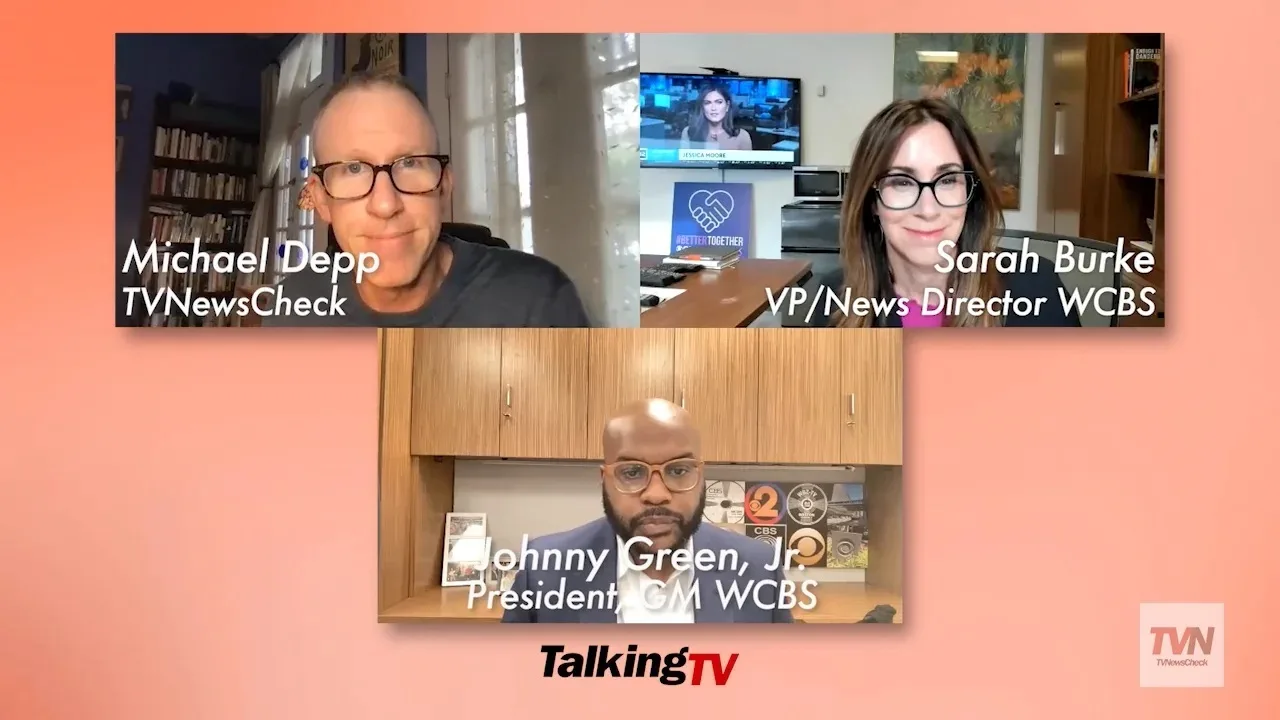
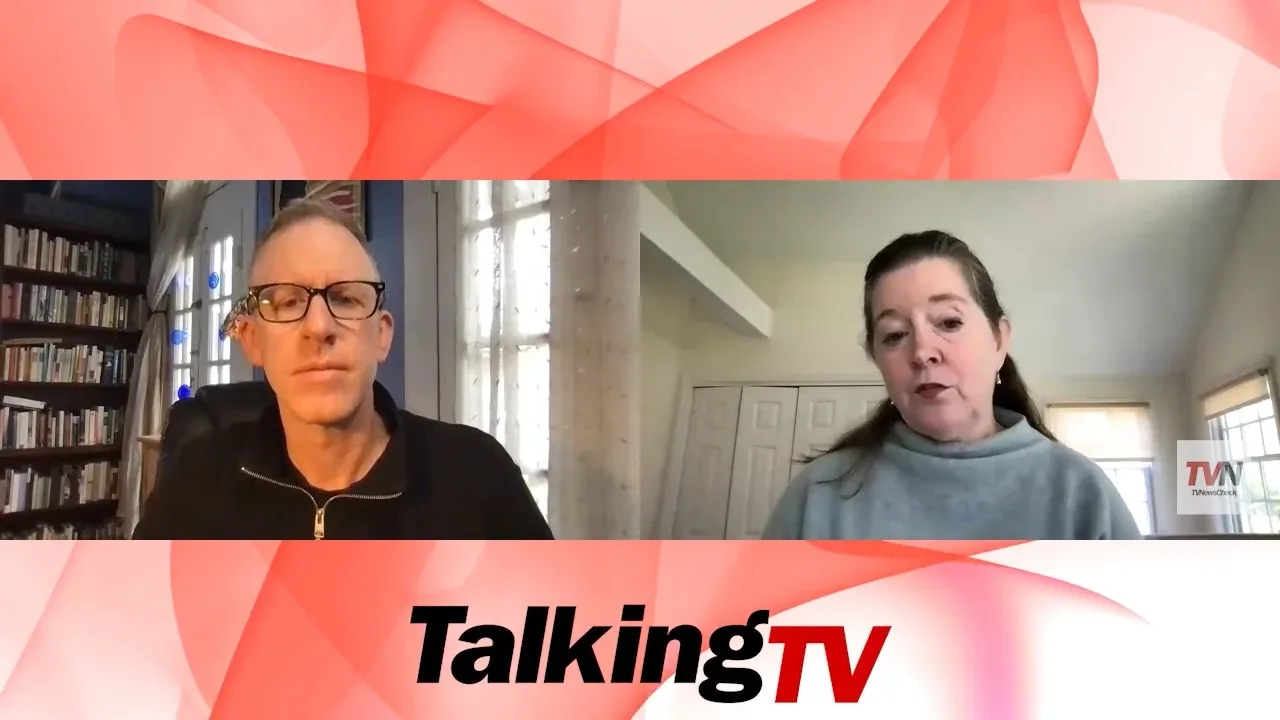

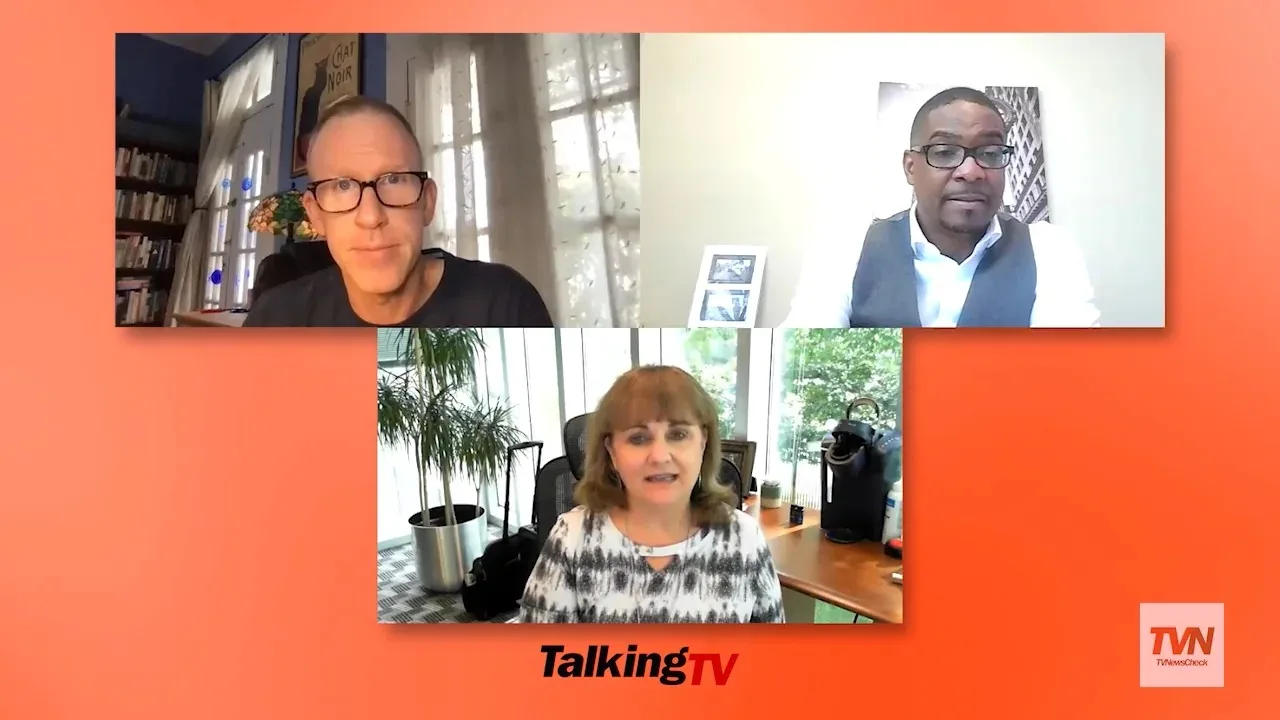
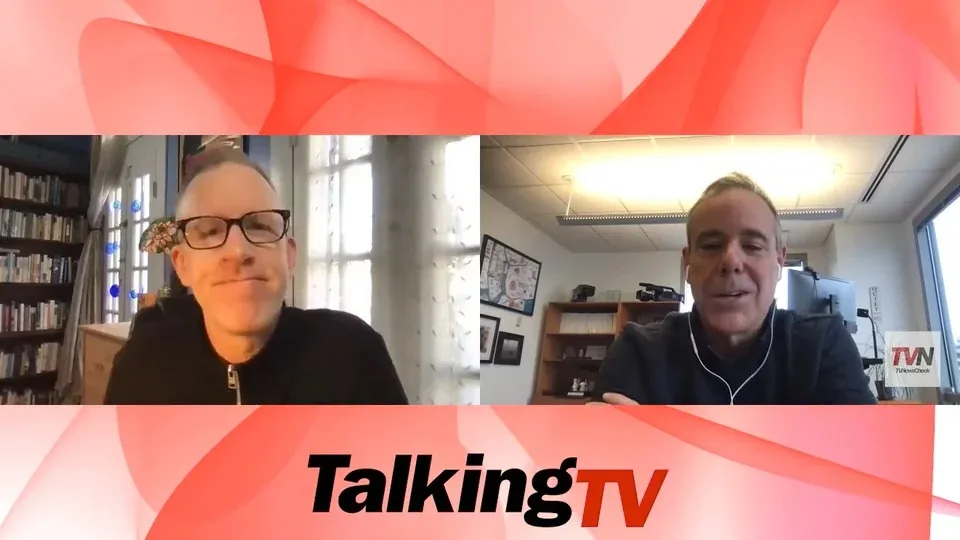

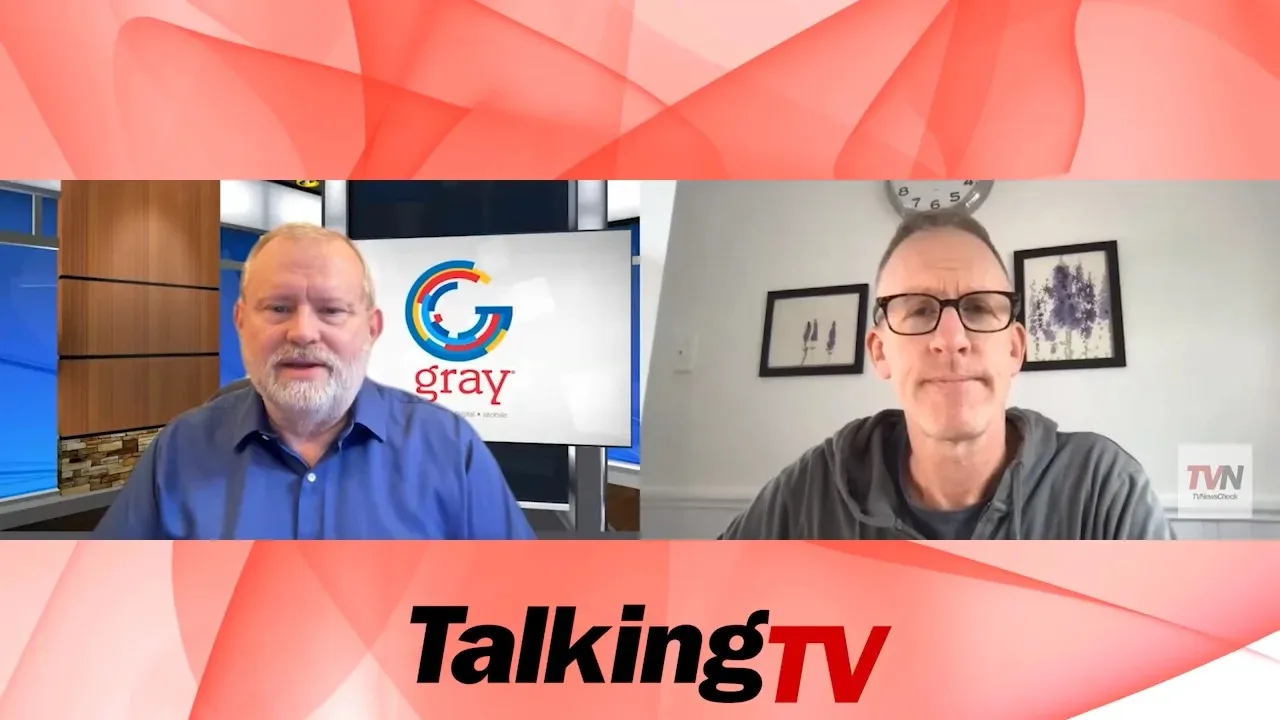
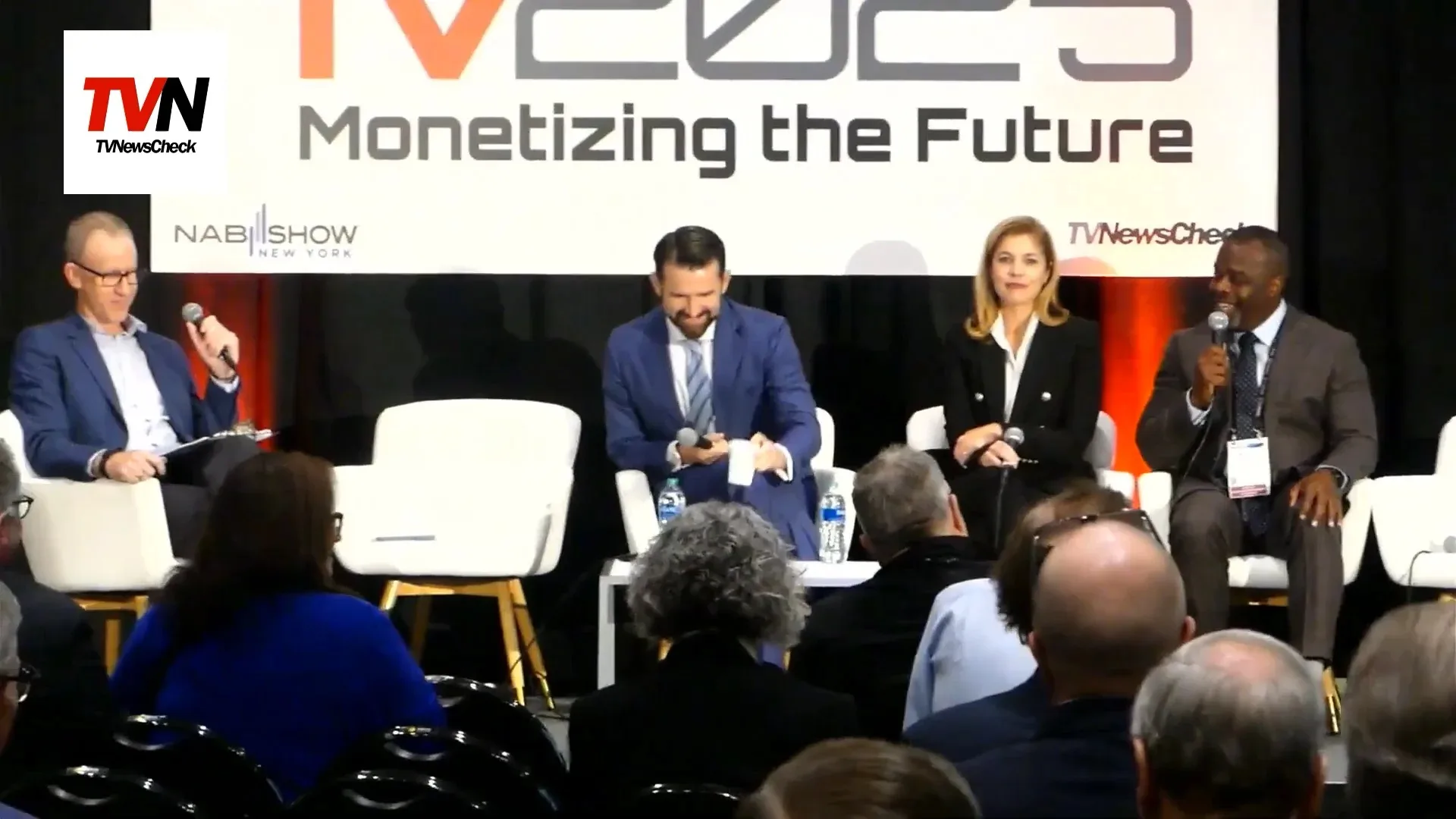







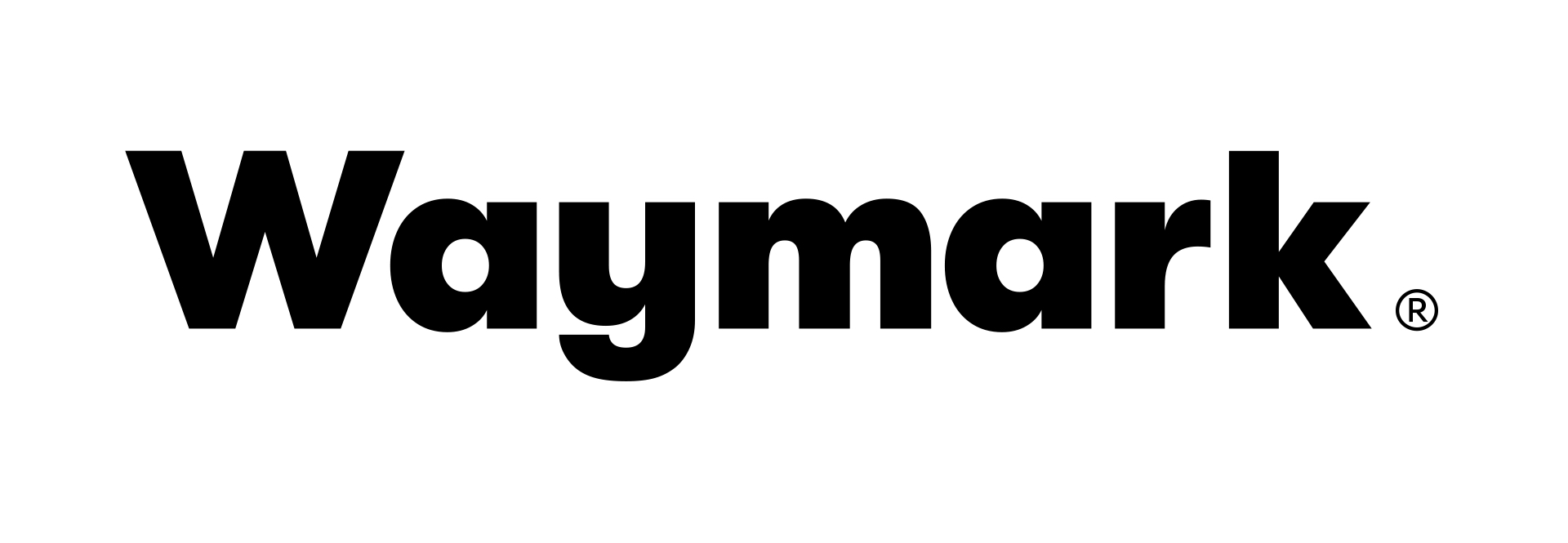





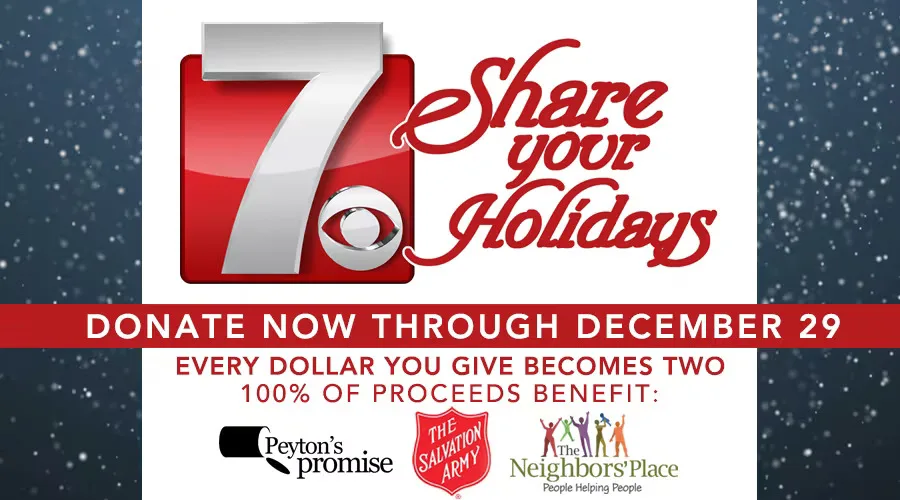


Comments (0)